The College of Science Impact blog has a post by Elana Roldan about recent graduate and Goldwater Scholar Madalyn Gragg
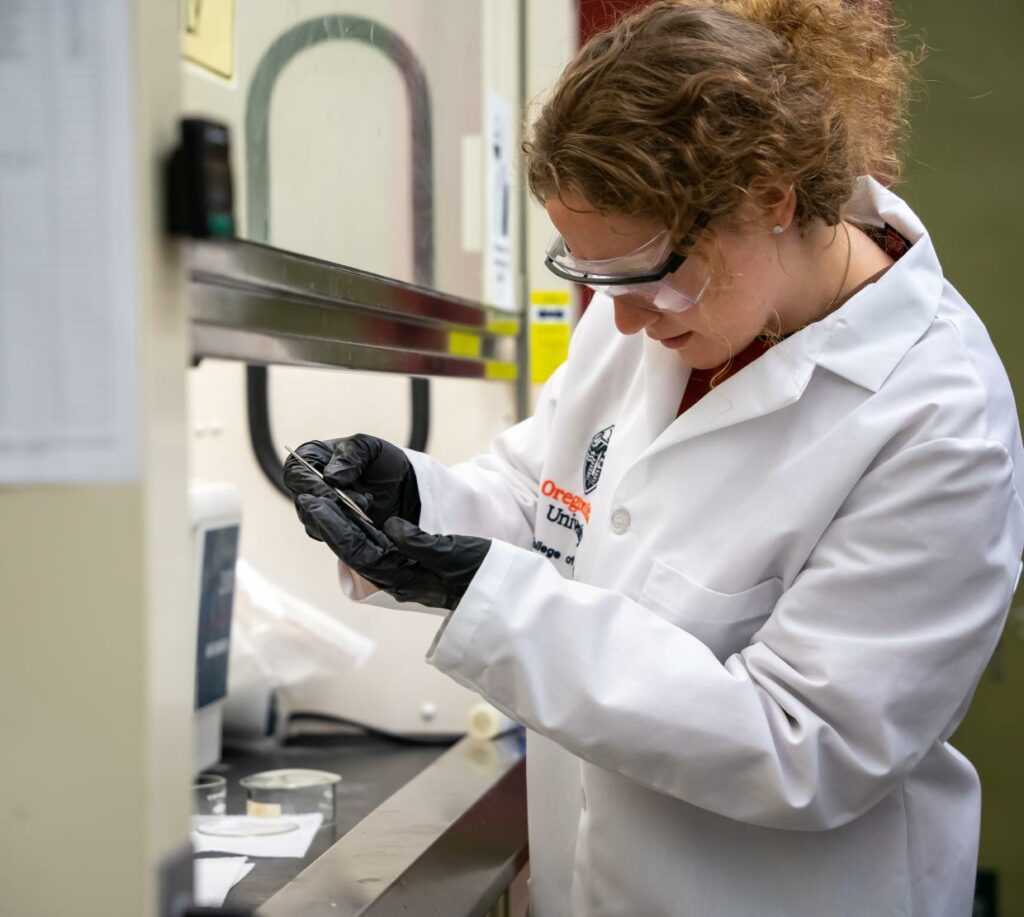

The College of Science Impact blog has a post by Elana Roldan about recent graduate and Goldwater Scholar Madalyn Gragg

Reprinted from an Impact post by Hannah Ashton on January 17, 2025
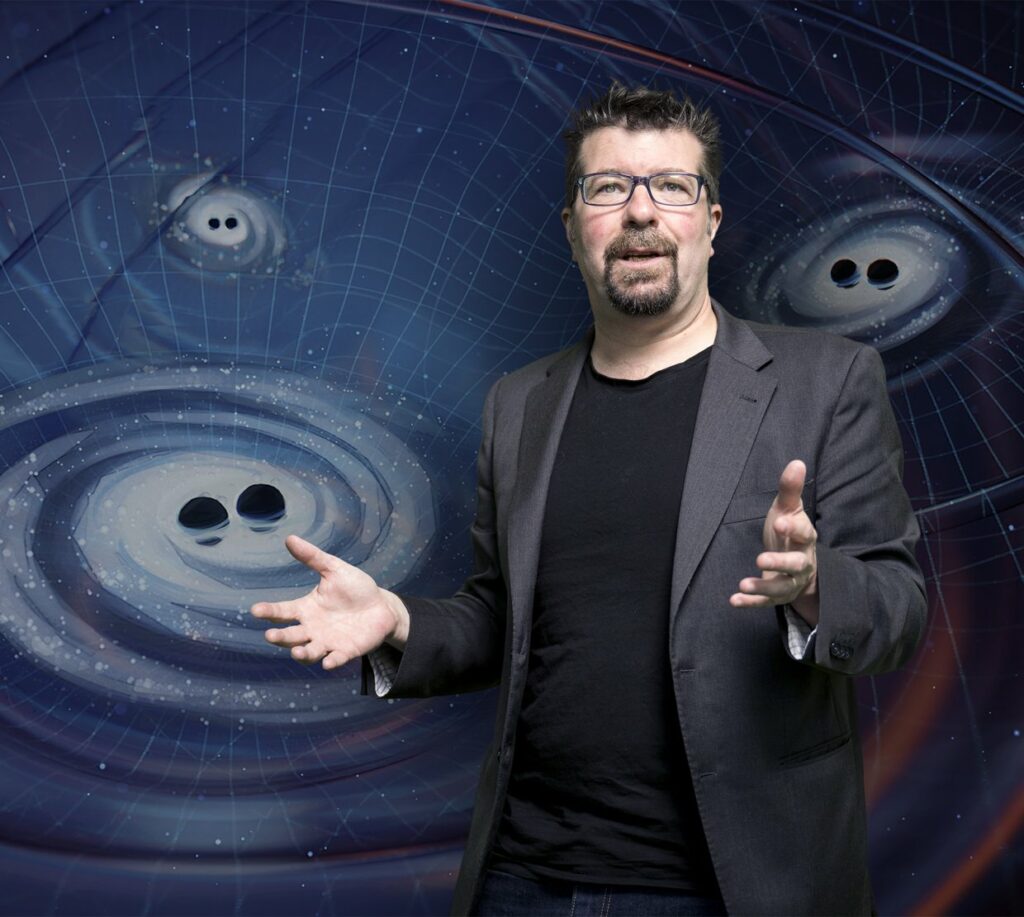
Xavier Siemens, a renowned astrophysicist and professor at Oregon State’s College of Science, has been awarded the prestigious 2025 Bruno Rossi Prize, one of the highest international honors in high-energy astrophysics, for his groundbreaking work uncovering evidence of binary supermassive black holes.
Siemens shares the honor with Maura McLaughlin and the North American Nanohertz Observatory for Gravitational Waves (NANOGrav) Physics Frontiers Center whose achievement in gravitational wave research marks a significant step forward in understanding the dynamics of the Universe and its deep mysteries.
In June 2023, Siemens led an international team of nearly 200 researchers, including OSU students, in detecting low-frequency gravitational waves reverberating across the universe—ripples in spacetime first predicted by Albert Einstein over a century ago. This discovery provided the first direct evidence of the stochastic gravitational wave background, caused by merging binary supermassive black holes.
NANOGrav announced their groundbreaking discovery in June 2023. The news was picked up around the world including by the New York Times, Nature, Reuters, AP News, The Guardian, The Washington Post, BBC, NPR and more.
“We are incredibly proud of Dr. Siemens,” said Dean Eleanor Feingold. “The Bruno Rossi Prize is one of the most prestigious honors in high-energy astrophysics and places him among the world’s leading scientists. His groundbreaking achievements continue to inspire his students, who pursue the universe’s most profound questions with his mentorship.”
Presented annually by the High Energy Division of the American Astronomical Society, the Bruno Rossi Prize recognizes exceptional contributions to high-energy astrophysics. Awarded since 1985, this prize is highly regarded in the astrophysics community, often highlighting work that pushes the boundaries of our understanding of the universe. The award will be formally presented at the next HEAD meeting, where Siemens and his collaborators will deliver a lecture on their findings.
Siemens’ achievements not only advance the field of astrophysics but also inspire the next generation of scientists, including graduate and undergraduate students at Oregon State, where he continues to mentor and conduct research that pushes the boundaries of human knowledge.
Dr. Walsh received College of Science Faculty Scholar award for recognition of his exceptional contributions to his discipline and Oregon State University. This is a three-year titled endowed position. See more details at https://internal.science.oregonstate.edu/faculty-and-staff-awards/college-science-whiteley-faculty-scholar-teaching-excellence-award-and-osu
Nima Laal received 2022-2023 Larry W. Martin & Joyce B. O’Neill Endowed Fellow in the College of Science.
Isak McGieson received DOE Graduate Student Research (SCGSR) program award.
Congratulations to both!
It was a banner day for Physics at the College of Science Awards Ceremony on Tuesday, February 22, 2022 (lots of twos, too).
Liz Gire won the Frederick H. Horne Award for Sustained Excellence in Teaching Science. A master innovator in teaching, Liz earns accolades for her skill in communicating difficult topics and her ability to pitch physics at the right level for her students. A student wrote, “Her level of dedication to the genuine support and inclusion of the students in her courses is something I’ve never seen in an educator before. She backs that up with her skill and experience in education and communication that makes difficult content still accessible and enjoyable to learn.” Read more at the College of Science Impact Magazine.
Matt Graham was presented with the Industry Partnership Award for his work on harnessing waste heat. Matt has worked with several companies over the past several years on projects that have led to Ph.D. theses for his students.
Davide Lazzati earned this year’s Milton Harris Award for his outstanding work in the field of high-energy astrophysics. His pioneering considerations of electromagnetic signatures of neutron star mergers hav produced some of the most detailed predictions of compact binary mergers, perhaps one of the most exciting topic in astrophysics in the past decade. Read more at Impact Magazine.
Heidi Schellman is this year’s Gilfillan Awardee. The F.A. Gilfillan Award for Distinguished Scholarship honors faculty members in the College of Science whose scholarship and scientific accomplishments have extended over a substantial period of time, especially faculty whose research careers have had a significant impact on his or her field. Heidi’s work in neutrino physics is just part of her work leading to 700 peer-reviewed publications and an h-index of 113. She has contributed to several well-known scientific collaborations and currently serves in a leadership position for the Deep Underground Neutrino Experiment (DUNE). Read more at Impact Magazine.

Congratulations to Isabel Rodriguez, M.S. for being the 2021 recipient of the Harriet “Hattie” Redmond Award! This award celebrates a member of the OSU community who works as an agent of change in service of racial justice and gender equity. This ” Breaking Barriers” award is sponsored by the President’s Commission on the Status of Women (PCOSW), the Office of Institutional Diversity (OID), the Office of the Provost and OSU Athletics.
https://leadership.oregonstate.edu/pcosw/events/breakingbarriers
Isabel is a brilliant example of a scientist who works tirelessly and effectively for change in service of racial justice and gender equality. The STEM culture at Oregon State University is changing profoundly because of her influence. As a Black woman in astrophysics, she has expertly navigated the terrain in this white-male-dominated field to emerge as a powerful example to other marginalized people of how to be successful on their own terms and teaching her mentors to change the ways they interact with their students.
Isabel has been a powerful agent of change in our Department and College. She has challenged her research group, her peers, her mentors and the administration to look at our workplace differently and through the eyes of those marginalized. As an elected member of the graduate student committee, she helped lead discussions among the faculty and students in a series of Town Hall meetings that ultimately resulted in significant changes to the physics graduate program to make it more fair, flexible, and inclusive. She has also been an important member of the departmental DICE committee and a founding member of CoSMAC, the College of Science Multidisciplinary Antiracism Coalition, which advocates for the adoption of antiracist policies, practices, and actions in the College. She was also Vice President of the Black Graduate Student Association, where she organized regular on-campus events to foster a sense of community and belonging for Black undergraduate and graduate students. For her positive, measured and always relentless advice and guidance, Isabel is a worthy member of a spectacular group of leaders that have been recognized with the Harriet “Hattie” Redmond Award.
Thank you for your service Isabel, and for raising our collective consciousness.
Physics students and faculty are well-represented in the College of Science 2020 Summer Undergraduate Research Experience (SURE) Awards. These awards provide 11-week employment in the summer for students, though this year, because of closures during the covid-19 pandemic, the research may have to be stretched out over the academic year.
This year’s physics student awardees are:
Hunter Nelson advised by Tuan Pham (Mathematics)
Rohal Kakepoto advised by Janet Tate
Alan Schultz advised by Hoe Woon Kim (Mathematics)
Alexander van Balderen advised by Liz Gire
Jessica Waymire advised by Matt Graham
Ryan Wong advised by Bo Sun
Students from other departments working with Physics faculty are:
Emily Gemmill, (Biochemistry & Biophysics), advised by Weihong Qiu
Ruben Lopez (BioHealth Sciences) advised by Bo Sun
Congratulations all!
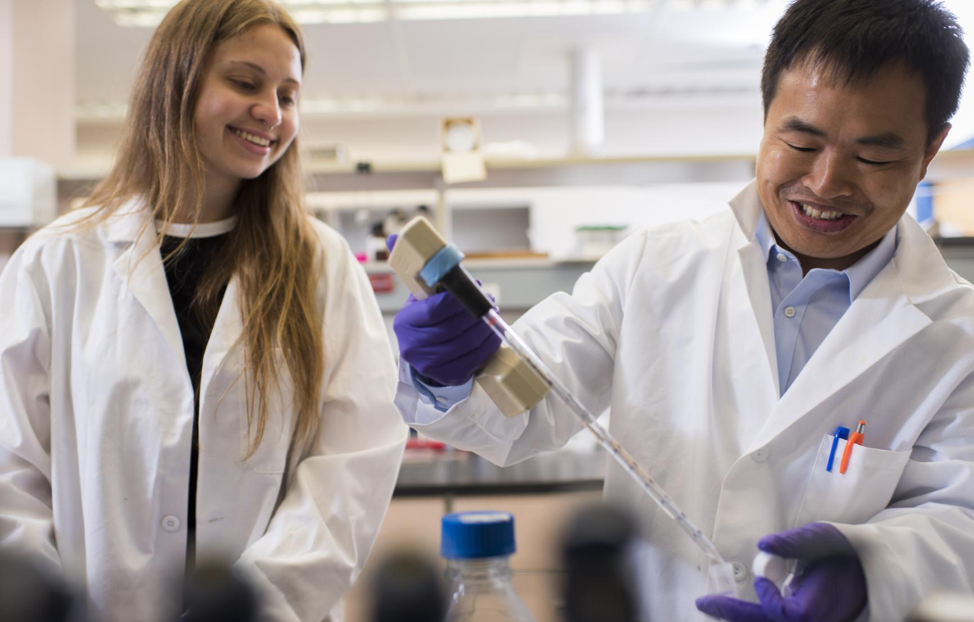
Three OSU Physics alums are among 2,046 graduate students nationwide to receive the NSF Graduate Research Fellowships Program award that pays stipend and partial tuition for 3 years. Congratulations to all three! See the Impact article from the College of Science for some more details about other College of Science GRFP recipients.
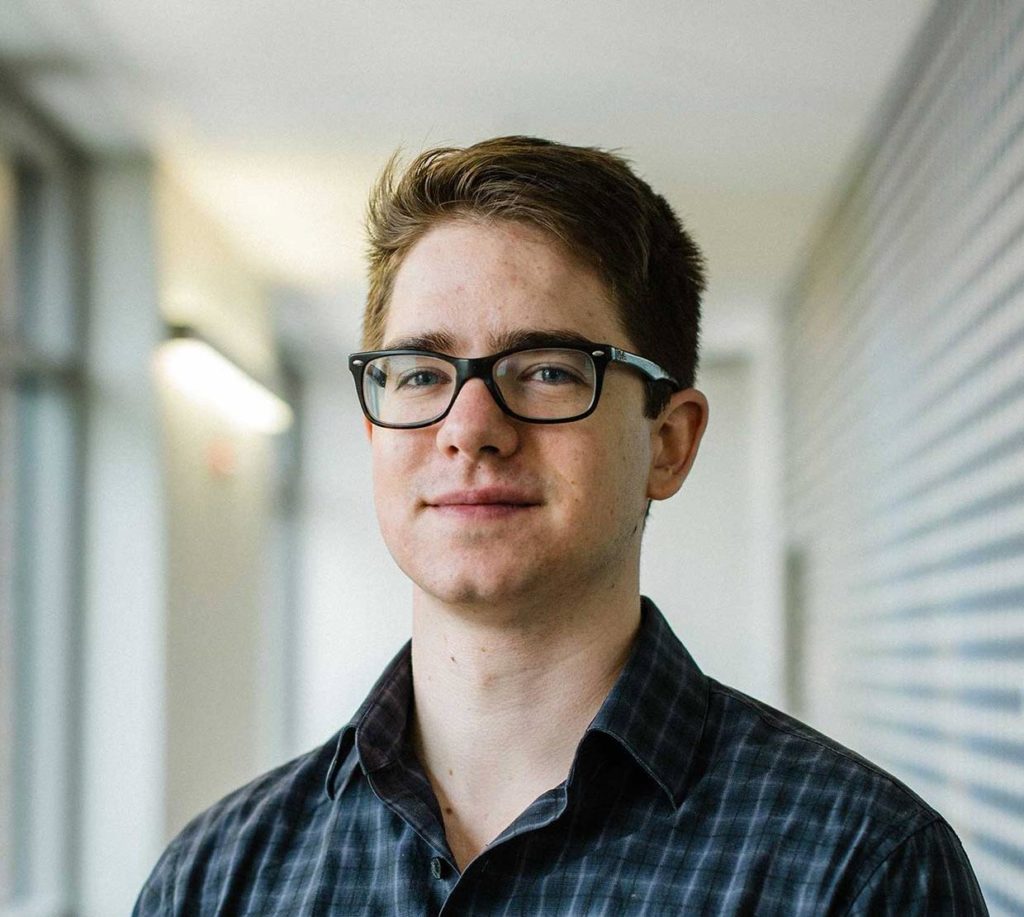
Mirek Brandt (BS in Physics & Mathematics 2018) worked in the Graham group while at Oregon State. His thesis was on The Impact of Crystal Morphology on the Opto-Electronic Properties of Amorphous and Organic Crystalline Materials. He won a Goldwater Scholarship as an undergraduate and then moved on to the University of California at Santa Barbara where he is doing his doctorate in Astrophysics.

Katelyn Chase (BS in Physics 2018) worked in Bo Sun’s biophysics laboratory during her time at OSU and wrote her thesis on Synchronized Cellular Mechanosensing due to External Periodic Driving. She is now a Ph. D. candidate at the Lewis-Sigler Institute for Integrative Genomics at Princeton University, conducting research in the Gitai bacterial biology laboratory, studying cytoskeletal proteins. She is interested in proteins involved in bacterial cell shape formation and maintenance. Her photo shows her in Iceland in January.

Patrick Flynn (BS in Physics and Mathematics, 2018) did his senior thesis project on Localized structures in a diffusive run and tumble model for M. xanthus, as part of the Complex Systems REU at the University of Minnesota with Arnd Scheel (Bo Sun was the local advisor). Patrick also contributed to the linear solver code for the Monte-Carlo simulations performed in David Roundy’s research group in Physics. Patrick is now a Ph. D. candidate in the Department of Applied Mathematics at Brown University. He is studying the Euler- and Vlasov-Poisson models appearing in plasma and astrophysics. His NSF GRFP proposal was about answering questions such as the existence and stability of solitary waves, or the existence of solutions containing many interacting solitary waves, for the Euler- and Vlasov-Posson equations. Patrick says he is “very enthusiastic about being able to address questions that have been partially addressed by the physics community to discover new mathematics, and in turn inform scientific discovery. Of course, my time at Oregon State was very formative in this regard, and I still heavily rely on what I learned in the mathematics and physics programs there. After all, I first learned what a dispersion relation was from David Roundy!” The accompanying picture shows Patrick on the Brown Campus.
See the Impact article from the College of Science for some more details about College of Science GRFP recipients.
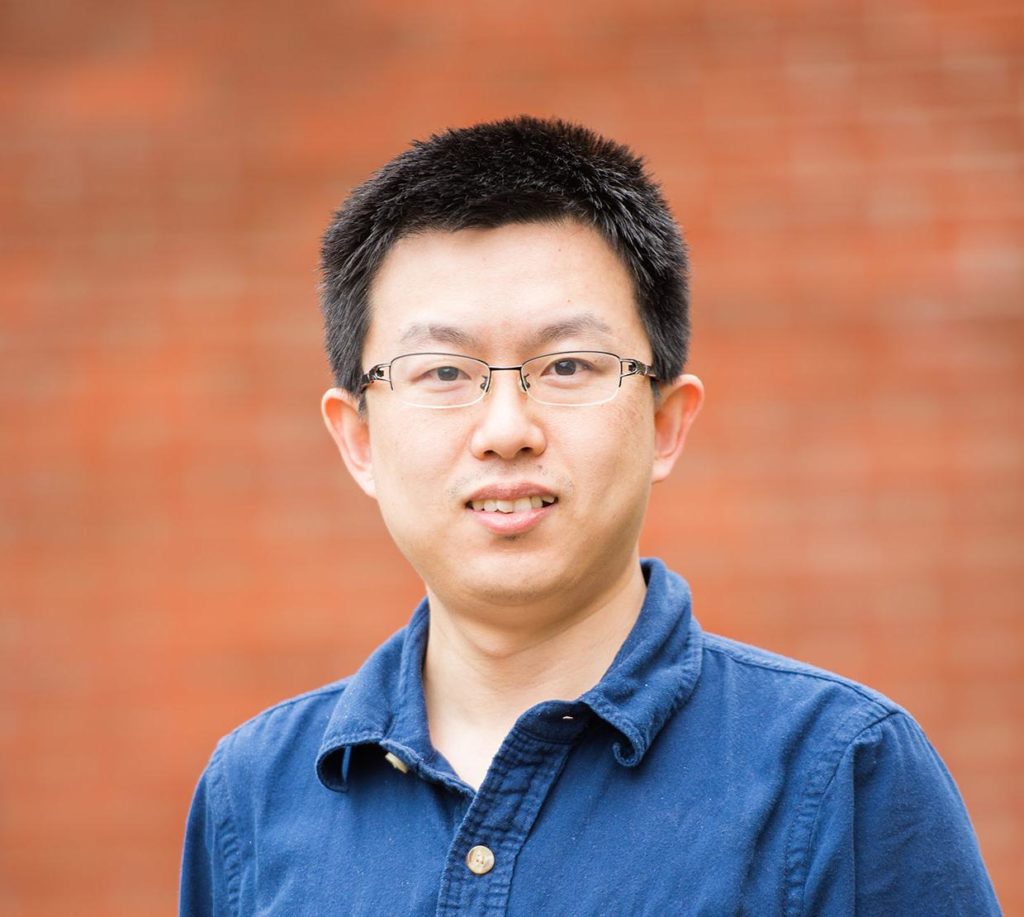
In December 2019, Associate Prof. Bo Sun received the Richard T. Jones New Investigator Award from the Medical Research Foundation of Oregon for his work on the biophysics of collective behavior in cells.
For more details on the award see the MRF awards site and the longer College of Science IMPACT article about Bo’s work.
And check out his research group at https://sites.google.com/site/biophysicsbosun/ to read about the successes of the large number of graduate and undergraduate students working in his lab.
Congratulations Bo!
Prof. Bo Sun has received an NSF CAREER award for his biophysics research. Please look at the longer IMPACT article for details. (And he’s also the 2019 Richard T. Jones New Investigator Award for the Medical Research Foundation of Oregon, more details on that after the ceremony in Portland later this term.)
